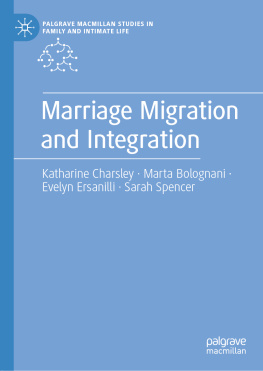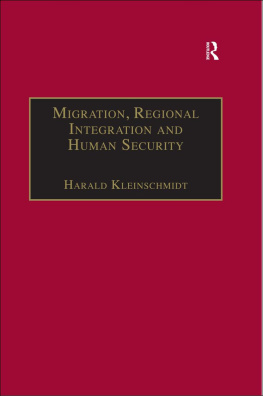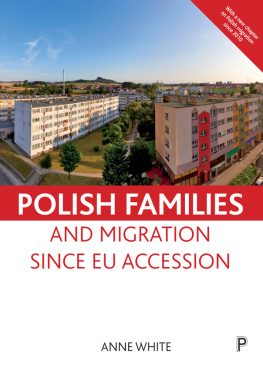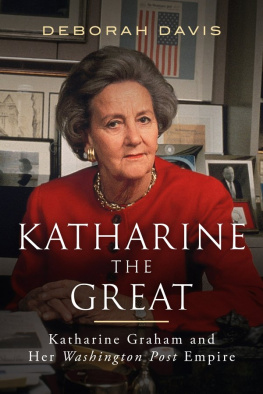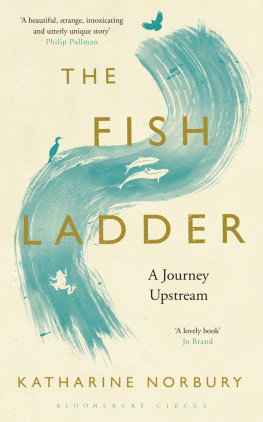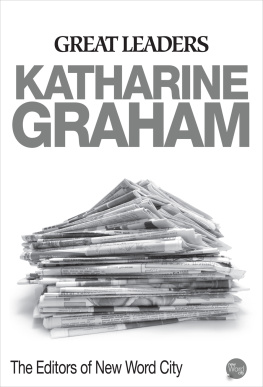Katharine Charsley - Marriage Migration and Integration
Here you can read online Katharine Charsley - Marriage Migration and Integration full text of the book (entire story) in english for free. Download pdf and epub, get meaning, cover and reviews about this ebook. year: 2020, publisher: Palgrave Macmillan, genre: Politics. Description of the work, (preface) as well as reviews are available. Best literature library LitArk.com created for fans of good reading and offers a wide selection of genres:
Romance novel
Science fiction
Adventure
Detective
Science
History
Home and family
Prose
Art
Politics
Computer
Non-fiction
Religion
Business
Children
Humor
Choose a favorite category and find really read worthwhile books. Enjoy immersion in the world of imagination, feel the emotions of the characters or learn something new for yourself, make an fascinating discovery.
- Book:Marriage Migration and Integration
- Author:
- Publisher:Palgrave Macmillan
- Genre:
- Year:2020
- Rating:3 / 5
- Favourites:Add to favourites
- Your mark:
- 60
- 1
- 2
- 3
- 4
- 5
Marriage Migration and Integration: summary, description and annotation
We offer to read an annotation, description, summary or preface (depends on what the author of the book "Marriage Migration and Integration" wrote himself). If you haven't found the necessary information about the book — write in the comments, we will try to find it.
Marriage Migration and Integration — read online for free the complete book (whole text) full work
Below is the text of the book, divided by pages. System saving the place of the last page read, allows you to conveniently read the book "Marriage Migration and Integration" online for free, without having to search again every time where you left off. Put a bookmark, and you can go to the page where you finished reading at any time.
Font size:
Interval:
Bookmark:
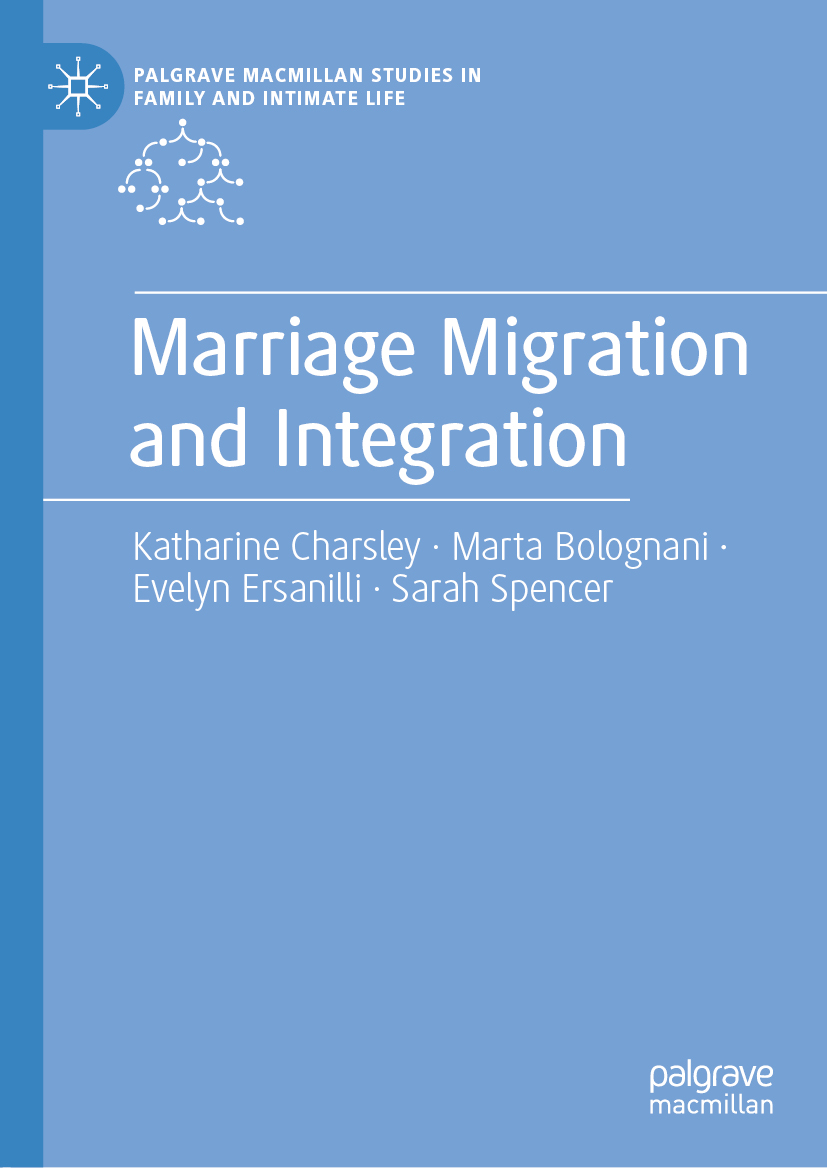
The Palgrave Macmillan Studies in Family and Intimate Life series is impressive and contemporary in its themes and approaches
Professor Deborah Chambers, Newcastle University, UK, and author ofNew Social Ties.
The remit of the Palgrave Macmillan Studies in Family and Intimate Life series is to publish major texts, monographs and edited collections focusing broadly on the sociological exploration of intimate relationships and family organization. The series covers a wide range of topics such as partnership, marriage, parenting, domestic arrangements, kinship, demographic change, intergenerational ties, life course transitions, step-families, gay and lesbian relationships, lone-parent households, and also non-familial intimate relationships such as friendships and includes works by leading figures in the field, in the UK and internationally, and aims to contribute to continue publishing influential and prize-winning research.
More information about this series at http://www.palgrave.com/gp/series/14676

This Palgrave Macmillan imprint is published by the registered company Springer Nature Switzerland AG
The registered company address is: Gewerbestrasse 11, 6330 Cham, Switzerland
We dedicate this book to our families and those of the wider project team, and all that they have gone through during the life of this project.
There are many people to thank for their input and assistance in making this research, and this book, possible. First, of course, our participantsour sincere thanks is due to all those who generously gave their time to tell us about their experiences and opinions. Choosing which quotations and vignettes to use was a difficult task amid so much interesting materialwe hope we have done justice to your accounts, your valuable insights and your memorable turns of phrase.
Several organisations provided invaluable assistance during the qualitative fieldwork: QED Foundation, Dhek Bhal, Roshni Ghar, Khaas, and Awaz Utaoh. We thank Nona Kaur and Davinder Singh for their generosity. We are also grateful to the members of the Marriage Migration and Integration Local and National Stakeholder Workshops, and the participants at the projects academic workshop in Oxford. Kaveri Qureshi, Therese OToole and the series editors provided valuable feedback on various stages of the project report and this book manuscript. Zahra Sabri provided Urdu translation of fieldwork material.
We are also grateful to our funders. This work was supported by the Economic and Social Research Council [Grant Number ES/K006495/1] and a University Research Fellowship from the University of Bristol.
Working on this project was made all the more fruitful and enjoyable thanks to a supportive, flexible and inspiring research team. Special thanks are due to Hiranthi Jayaweera who was with the project from the outset. Melanie Griffiths, Harpreet Kaur and Jatinder Kang carried out crucial work at crucial times for the project.
Charsley, K., Bolognani, M., & Spencer, S. (2017). Marriage Migration and Integration: Interrogating Assumptions in Academic and Policy Debates.Ethnicities, 17(4), 469490.
Ersanilli, E., & Charsley, K. (2019). A Good Match? Education, Labour Market Position, and British South Asian Transnational Marriage.European Sociological Review, 35(1), 133146.
Spencer, S., & Charsley, K. (2016). Conceptualising Integration: A Framework for Empirical Research, Taking Marriage Migration as a Case Study. Comparative Migration Studies, 4(1), 119. (license: https://creativecommons.org/licenses/by/4.0/ ).
Charsley, K. (2018). A First Generation in Every Generation? Spousal Immigration in the Casey Review and Integrated Communities Strategy Green Paper.Discover Society( https://discoversociety.org/2018/05/01/a-first-generation-in-every-generation-spousal-immigration-in-the-casey-review-and-integrated-communities-strategy-green-paper/ ).
Spouses constitute one of the largest categories of migrant settlement. In Britain and elsewhere in Europe, concern is increasingly expressed over the implications of marriage-related migration for integration. In some ethnic minority groups, significant numbers of children and grandchildren of former immigrants continue to marry partners from their ancestral homelands. Such marriages are often presented as particularly problematic: migrant spouses forming a first generation in every generation inhibiting processes of individual and group integration, impeding socio-economic participation and cultural change. Immigration restrictions likely to impact particularly on such groups have thus been justified on the grounds of promoting integration. The evidence base to underpin this concern has, however, been surprisingly limited, and characterised by differing and often partial understandings of the contested and politicised concept of integration. This book provides the first sustained empirical evidence on the relationships between marriage migration and processes of integration, focusing on two of the largest British ethnic minority groups involved in these kinds of transnational marriagesPakistani Muslims and Indian Sikhs. The book draws on both quantitative and qualitative data to compare transnational homeland marriages with intra-ethnic marriages within the UK. Using a distinctive holistic model of integration, we examine processes in multiple interacting domains, covering topics including employment, education, social networks, extended family living, gender relations and belonging. The wide-ranging findings, which often challenge common sense assumptions, enhance understanding of the relationships between marriage-related migration and the complex processes covered by the term integration, providing much needed new grounding for both academic and policy debates.
Font size:
Interval:
Bookmark:
Similar books «Marriage Migration and Integration»
Look at similar books to Marriage Migration and Integration. We have selected literature similar in name and meaning in the hope of providing readers with more options to find new, interesting, not yet read works.
Discussion, reviews of the book Marriage Migration and Integration and just readers' own opinions. Leave your comments, write what you think about the work, its meaning or the main characters. Specify what exactly you liked and what you didn't like, and why you think so.

